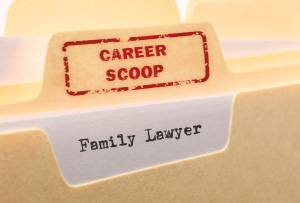 Career Insight: Family lawyer
Career Insight: Family lawyer
In a nutshell, what do you do?
I act for separated parties who may wish to obtain a divorce, sort out children’s arrangements and divide their property either by consent or through the Family/Federal Courts. I also draft financial agreements, advise on child support and domestic violence.
Why did you decide to become a Family Lawyer?
I decided to become a lawyer because I was attracted to the concept of social justice and making a difference. I chose family law because I wanted to act for ‘real’ people and assist them through a difficult and emotional time of their life.
What path did you take into it?
After studying for my law degree, I spent two years as an Articled Clerk obtaining experience in different areas of law. I initially spent some years in tort law before moving across to the family law jurisdiction.
What, in your opinion, is the best bit of being a Family Lawyer?
The best part of being a family lawyer is assisting a client to amicably resolve their matter as efficiently and inexpensively as possible without having to go to court.
Every job has its downsides. What do you think are the worst bits?
The worst parts are the congested and poorly resourced court system and being berated by the Judges who preside in those courts. Secondly, client dissatisfaction. Clients often complain about the cost of engaging a lawyer and the end result, despite that result often being reasonable in all of the circumstances.
Is it what you expected when you first started out – and what’s different?
The practice of law is what I expected – I expected to work hard, for it to be demanding, to experience levels of stress but along the way to be well regarded and respected. What’s different is that as a lawyer we are not respected. I also thought it would get easier, and be more enjoyable with the more knowledge and experience I gained. That hasn’t happened, the demands of practice are great, sometimes with little recognition or reward.
What do the public least understand – or mistake – about what you do?
The public thinks lawyers charge excessively and mistakenly think we earn large sums of money. Only a small proportion of the profession earn significant incomes. I don’t think the general public understands the stress we experience in trying to assist them in their matter, or that we manage a case load of other clients who all want the same level of attention.
Also the internal pressure of our firms to deliver budgets, work to a high standard and be upstanding members of the community, where – in addition to working long hours – we must then contribute back to the community.
What kind of people tend to do well?
Ambitious, hard-working, driven people will thrive in the law; those with good attention to detail, those not afraid to fail and strong, confident personalities to deal with the various aspects that the job requires.
Finally, any advice you’d offer to people looking to get into this line of work?
People are attracted to the law for various reasons. It is important to think about these reasons before deciding to study law. Private practice may not deliver the level of personal satisfaction people would like and it is difficult to achieve work/life balance because of the nature and pressure of the job.
If you’re convinced that the law is for you, then ensure you experience the different fields of law to practice in and think carefully about the type of firm you join, as both of these decisions may make a great difference to your future job satisfaction.



